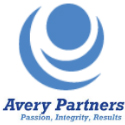Things you should remember and know when you are looking for temporary employment agencies.
Whether online or offline, temporary employment agencies are everywhere. When you need a simple job just to get you through hard times temporarily, you can easily get those types of jobs in temporary employment agencies. Thanks them, there’s always a perfect job for you anytime and you can even select the work that you want to do. The entire temporary employment agencies job is just to connect you with the job that matches your preference and skills.
But you need to watch some of the companies. Here are things that you should remember when you’re signing up for work in temporary employment agencies.
Remember that you’re going to the temporary employment agencies because you need a job that will give you the money. And it should never be the other way around. Beware of those temporary employment agencies that will ask you for “application fees”. These agencies are already paid by companies whenever they find a qualified person for the job. The reputed and successful ones get their profit from employers and those that ask money from applicants just mean that they don’t have enough clients to support their operations.
Most of these companies that will be asking for money can be found online. While it can’t be said that temporary employment agencies online can’t be trusted, you don’t really know where they are and where they come from. If the company looks promising, check if they have all the contact information. The online site of Better Business Bureau is a good source for getting legitimate companies. If you’re really not sure about the online sites, you can also go to a local employment agency. If you’re not really looking for a temp job in other places, you’re better off in dealing locally.
At your end, these temporary employment agencies expect you to do your job and finish you contract with the company that you’re working for. Before you accept the job offer, read the conditions and if possible, check the company you’re dealing with online or ask someone who has been with the company about it. Once you accept the invitation, make sure you live up to the standards and don’t get fired. It’s going to leave a mark if you don’t finish you contract. Other companies interested in you will have second thoughts as they will see in your record that you have been fired for some reason. You should also finish the contract or leave formally to keep a clean record.
Being smart in selecting the better temporary employment agencies is really easy but it’s tempting to just get anything online. With awareness, you can easily get your dream job if you know where to find good temporary employment agencies.





